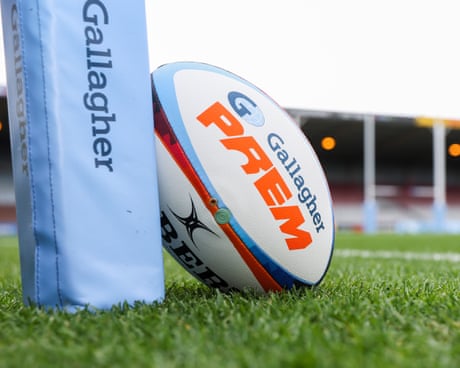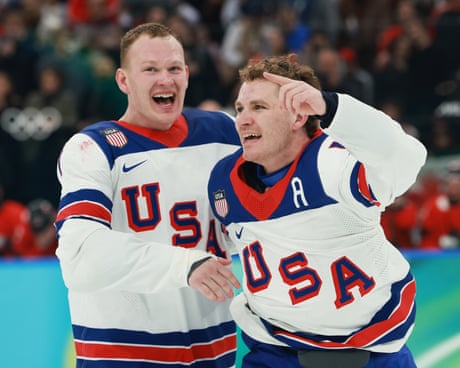
BOSTON — The last time Ross Stripling was on the hill, the Toronto Blue Jays were reeling. They’d lost three in a row; six of seven; nine of 12. They’d fallen to third in the American League wild-card standings, only a half-game ahead of that day’s opponent — the Baltimore Orioles. Waking up that morning, hours before he’d take the mound for a rare midweek Rogers Centre matinee to try to stop the bleeding, Stripling was nervous.
“I was feeling the weight of the world on my shoulders a little bit,” Stripling says. “Like, ‘Man, this start needs to be good. The team needs it. I need it coming of the IL.’ … I felt nerves and anxiety and pressure going into that start.”
Those emotions compounded when Stripling started warming up on the bullpen mound and saw the pitches that were coming out of his hand. His changeup was cutting, leaking out over the plate — where damage is done — rather than fading down beneath the zone, where it’s most effective. That’s not good. As he walked to the dugout prior to first pitch, Stripling was mentally preparing himself for the possibility of pitching without his best weapon.
And then a funny thing happened. He ran out, found a feel for his stuff, and started steamrolling Baltimore hitters. His changeup was phenomenal, getting six whiffs on 10 swings. Stripling carried a perfect game into the seventh. Thanks to a long-overdue, late-game offensive breakout, the Blue Jays won a laugher. And, as if Stripling had ignited something, the rest of Toronto’s rotation fell in lockstep behind him, churning through deep, effective starts of their own. The Blue Jays rattled off four straight wins. They held opponents to nine runs over five games. The ship righted.
Which brought Stripling to his next start, Tuesday, at Fenway Park in Boston. As has been the case for Stripling a few times this season, circumstances conspired against him. The threat of rain delayed first pitch by an hour. While he was warming up in right field, the Fenway Park grounds crew ran him into the bullpen as they pulled back the infield tarp. He gave up an early run on a seeing-eye single in the second.
But then another funny thing happened. Stripling did what he always does. Six innings of efficient, controlled one-run ball. His changeup was a weapon, but this time in a set-up capacity, as he played his four-seam fastball (five of his 10 whiffs) and slider (three whiffs) off of it. He went at least five innings and allowed fewer than three runs for the eighth time in 12 starts since rejoining Toronto’s rotation in early June.
And that the Blue Jays won, 9-3, tells you that Toronto’s bats showed up for him once again. This time, it was a rollicking third inning in which the club strung together five hits and three walks with two outs, ultimately bringing 12 batters to the plate and scoring eight of them. The Blue Jays chased Red Sox starter Josh Winckowski from the game in the process, before teeing off on his replacement, Austin Davis. Incredibly, the only Blue Jays starter not to reach base in the inning was the club’s best hitter, Vladimir Guerrero Jr., who doubled twice on the night.

That Toronto’s offence performed so collectively and relentlessly with two outs, passing the baton from one hitter to the next with discerning plate appearance after discerning plate appearance, was an encouraging sign for a team that’s struggled to come through in similar spots against what appears on paper to be over-matched competition — Winckowski, a former Blue Jays prospect, entered the night with a 5.19 ERA over 12 big-league starts — in the past.
Not to mention a lineup that has often come out of its approach in those situations, trying too hard to make an impact on the game rather than letting the game come to them. It’s a lot like the nervousness and anxiety Stripling experienced prior to his last start. Ballplayers call it “pressing.” Your team’s in a bad way. It needs someone to do something big, something impactful, to get it off the mat. In the batter’s box, on the mound, in the field, players sit with that pressure and look for their opportunity to be that someone.
But not all opportunities are created equal. And often players will try to force the issue and do too much at a time that doesn’t call for it. That’s when things go wrong. If you’ve watched Blue Jays baseball this season, that probably feels familiar.
“We’re no longer going to show up and out-talent teams. I think we’ve proven that. We need to put the work in and be prepared and show up ready to play good baseball to win games at this level,” Stripling says. “We know that. And we’re probably pressing a little bit.”
Whether the Blue Jays have at times self-sabotaged their own performance due to baseball’s inherent and extreme mental pressure is impossible to say with any certainty. There’s little empirical or data-driven about it. Poor performance isn’t evidence on its own. It’s often an outcome of pressing. But pressing isn’t always the cause.
The best barometer we have is player decision-making. Decisions to try to take an extra base or not risk running into an out; decisions to lay out for a flyball or ease up and approach it tactically; and, perhaps most crucially, swing decisions at the plate. The pitches you offer at and the ones you don’t. That’s where pressing often materializes. And, wouldn’t you know it, Guerrero’s swinging at 32.5 per cent of the pitches he’s been thrown outside the zone this season, a four per cent increase over 2021, and a five per cent increase over 2020.
You probably remember his plate appearance late in Sunday’s loss to the New York Yankees. Seventh inning, bases loaded, tie game, two out, Lou Trivino on the hill. In a three-pitch at-bat, Trivino didn’t throw Guerrero a strike. But the Blue Jays first baseman offered at two of them, including one he grounded to short to end the inning:
Is that pressing? Looks a lot like it. At his best, Guerrero’s demonstrated an ability to recognize balls and strikes at an elite level. With a more disciplined approach, he could have been in a 3-0 count. Maybe 2-1 if he got hosed on a call. But the pressure to perform in that moment is immense. And sometimes young players try to do too much.
Stripling’s been there. In his own way, on the mound. And he felt himself going there prior to last week’s start when his team was reeling. It was an eye-opening experience.
“I started to think, ‘Man, I bet Vladdy feels this every time he’s in the box. Or (Jordan) Romano when he’s saving games. I bet they just feel the weight,’” Stripling says. “And I think you can see that from our team trying to play hero baseball a little bit, rather than relying on the 25 other guys to pick each other up. I feel like we’re all trying to hit the five-run homer or get the perfect strikeout. And I feel like we were pressing.
“I’m trying to make it a priority to go around and tell them, ‘Hey, everyone’s got each other’s back here. It’s not on you to get it done. We’ve got a whole team — a really talented, deep roster here that can compete with anybody. So, just remember that. It doesn’t take one hero every night.’”

Stripling remembers the Los Angeles Dodgers team he played on in 2017. Kershaw, Wood, Jansen, Turner, Bellinger, Seager. He figures it was the most talented roster he’s ever been a part of. That team entered September with a 16-game lead in the NL West and promptly lost 11 straight. It felt like the sky was falling. Everyone was trying to do too much to get out of it.
It wasn’t until those Dodgers stopped pressing and found their equilibrium that they reversed the tailspin and continued on to a World Series they lost in seven games. Have the Blue Jays been pressing at times this season? Stripling thinks so. And he thinks the Blue Jays could go just as far as those Dodgers did if they sort it out.
“This team can win a ring. They’re as talented as anybody across baseball. We really are,” Stripling says. “We’ve been streaky and we can play better. But I think the narrative — even what we would say in the locker room — is that at some point it’s all going to click. At some point, pitching, hitting, defence, it’s all going to come together. We’re too good for it not to.
“Well, here we are in the middle of August, and it really hasn’t clicked on all three at once all year. So, I think we’re over saying that. We’re not saying that anymore. Now we’re saying, ‘All right, we’re going to have to go do it ourselves.’”








